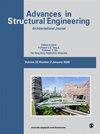A comparative analysis of CAD modeling approaches for design solution space exploration
IF 2
4区 工程技术
引用次数: 0
Abstract
Design solution space (DSS) exploration is a pivotal process for comprehending design challenges and identifying diverse solution alternatives based on varying requirements. Computer-aided design (CAD) approaches, such as parametric design, knowledge-based design, and generative design, have proven successful in DSS exploration. However, a comparative study evaluating their performance is lacking in the technical literature. This paper addresses this gap by conducting a comparative analysis of these approaches regarding their performance in exploring DSS. The research begins by providing an overview of parametric design, knowledge-based design, and generative design, establishing the foundation for the study. Six evaluation criteria are identified based on the DSS exploration process. A qualitative analysis is then conducted, considering these criteria, to objectively assess the performance of each modeling approach. The results highlight the strengths and weaknesses of each approach, revealing that DSS exploration success is directly tied to the quantity of implemented knowledge. The results also emphasize the complementarity of those approaches, as their strengths and weaknesses are based on different problem-solving logics, demonstrating the synergy that can be achieved through strategic combinations of them. Additionally, the paper discusses open issues related to DSS exploration, contributing valuable insights for future developments in this field.设计方案空间探索的 CAD 建模方法比较分析
设计方案空间(DSS)探索是理解设计挑战和根据不同要求确定不同解决方案备选方案的关键过程。事实证明,参数化设计、基于知识的设计和生成设计等计算机辅助设计(CAD)方法在探索设计方案空间(DSS)方面取得了成功。然而,技术文献中缺乏对其性能进行评估的比较研究。本文针对这一空白,对这些方法在探索 DSS 方面的性能进行了比较分析。研究首先概述了参数化设计、基于知识的设计和生成式设计,为研究奠定了基础。根据 DSS 探索过程,确定了六项评价标准。然后,根据这些标准进行定性分析,客观评估每种建模方法的性能。结果凸显了每种方法的优缺点,揭示了设计支持系统探索的成功与否与实施知识的数量直接相关。结果还强调了这些方法的互补性,因为它们的优缺点都是基于不同的问题解决逻辑,这表明通过对它们进行战略组合可以实现协同增效。此外,本文还讨论了与数据采集系统探索相关的开放性问题,为这一领域的未来发展提供了宝贵的见解。
本文章由计算机程序翻译,如有差异,请以英文原文为准。
求助全文
约1分钟内获得全文
求助全文
来源期刊

Advances in Mechanical Engineering
Engineering-Mechanical Engineering
自引率
4.80%
发文量
353
期刊介绍:
Advances in Mechanical Engineering (AIME) is a JCR Ranked, peer-reviewed, open access journal which publishes a wide range of original research and review articles. The journal Editorial Board welcomes manuscripts in both fundamental and applied research areas, and encourages submissions which contribute novel and innovative insights to the field of mechanical engineering
 求助内容:
求助内容: 应助结果提醒方式:
应助结果提醒方式:


